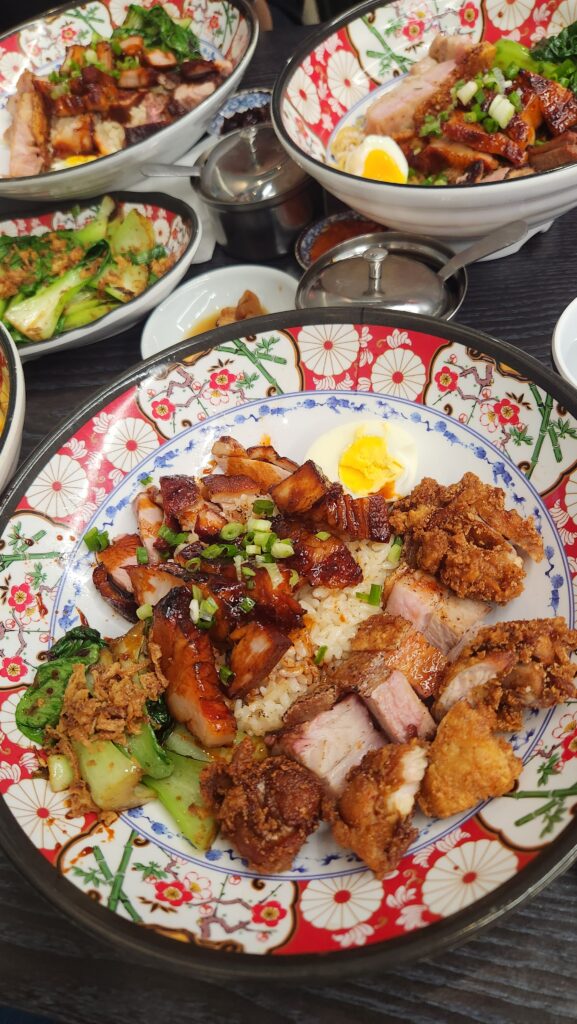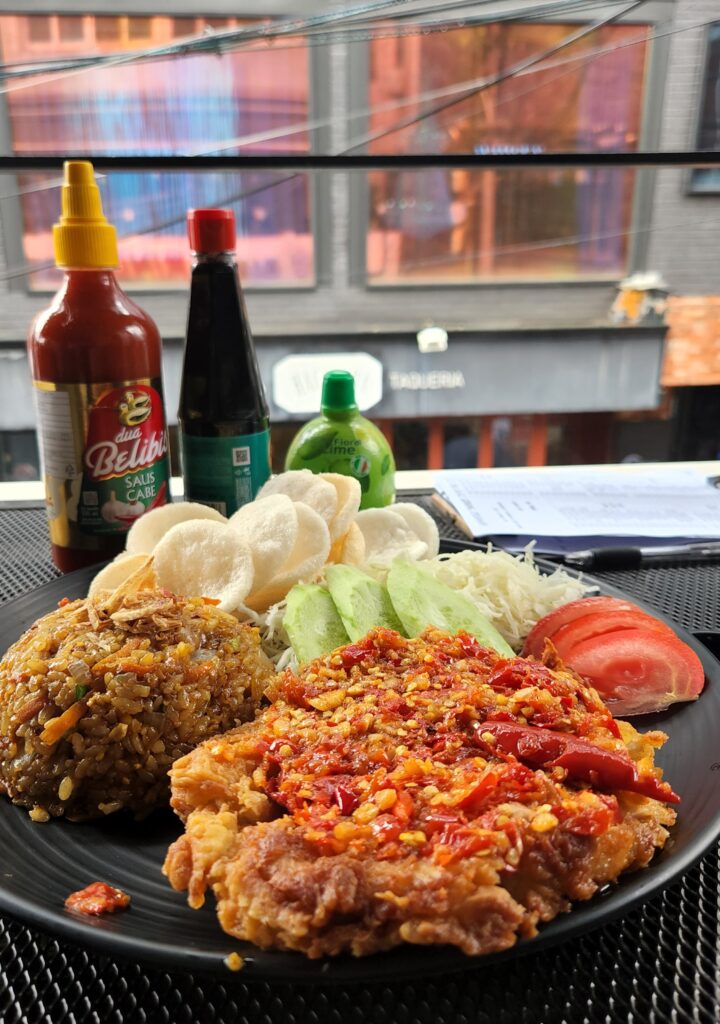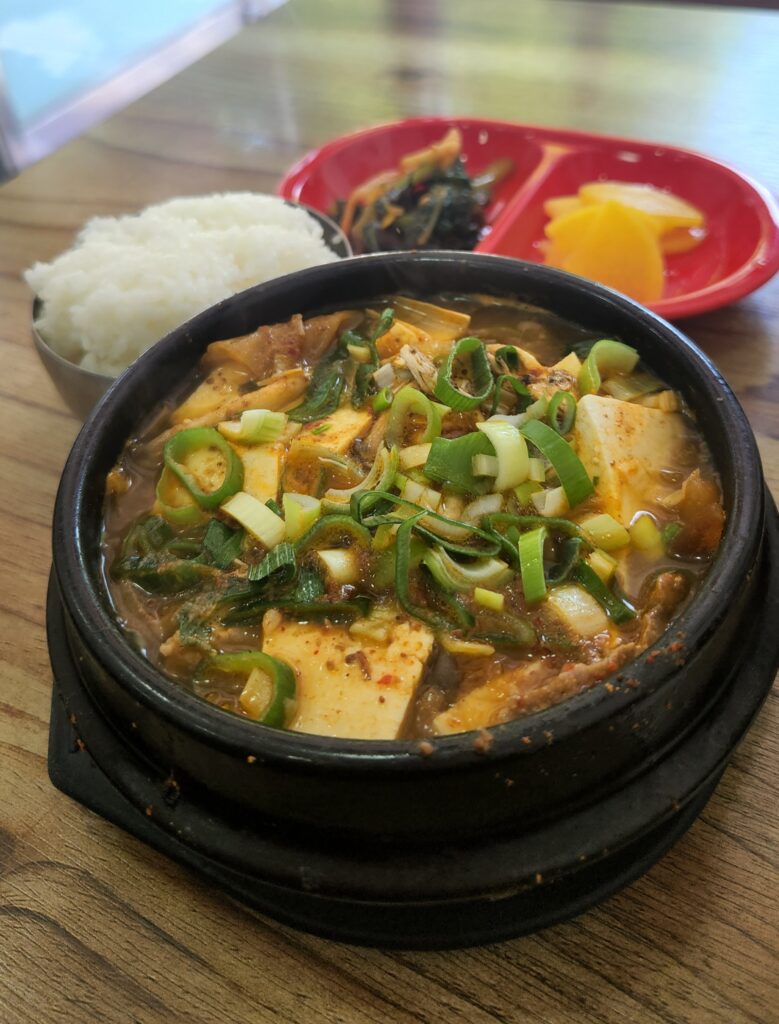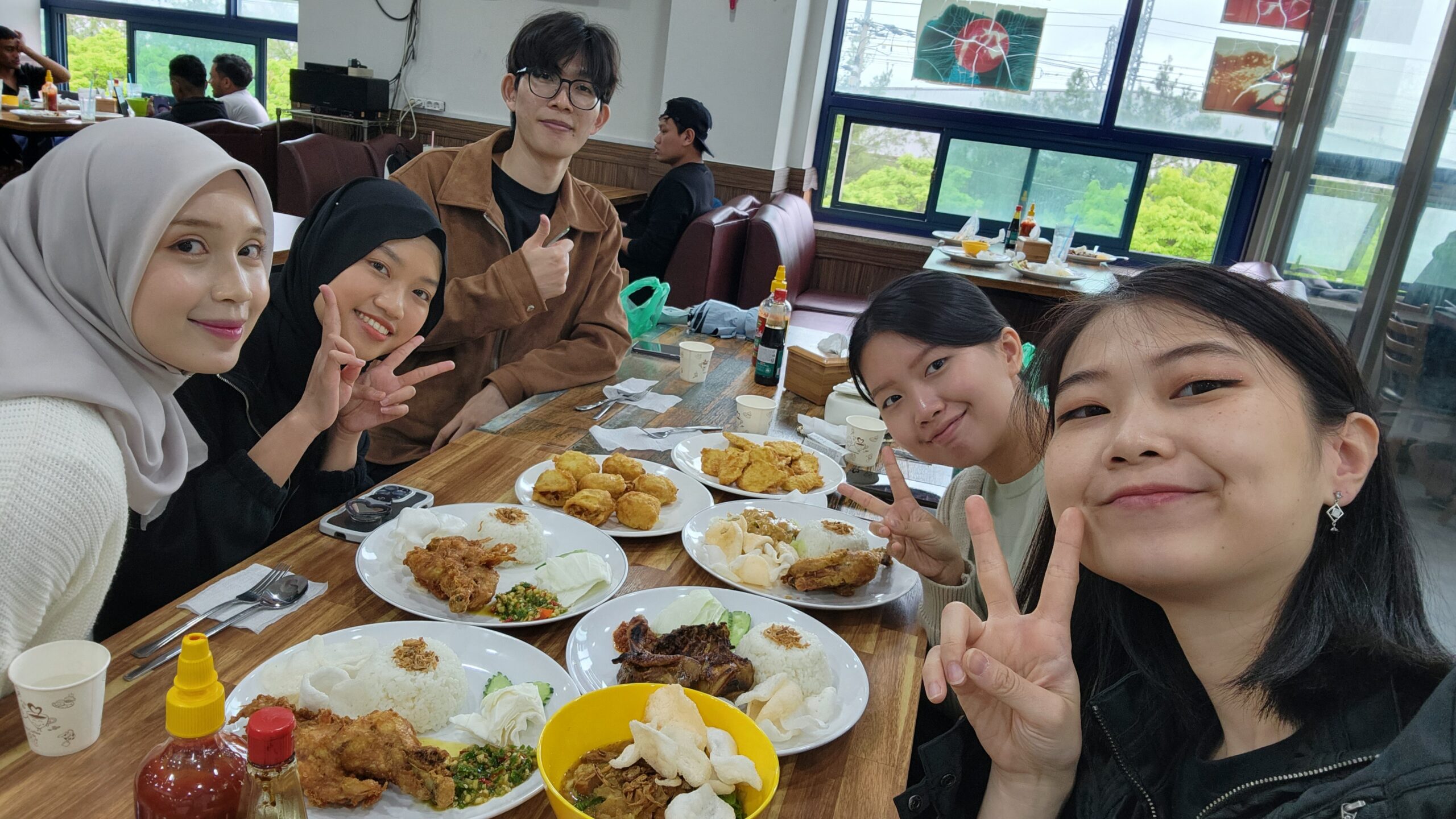Soul-Baring Bowls: Longing, Connection, and CuisineThe Author
By Catherine Sasmita
Living in a country where your native tongue is thousands of miles away from being recognizable is oftentimes an isolating journey. For individuals like myself, it can be very hard to admit the longing, as it is much easier to keep the intensity of melancholy at arm’s length. Raised in a culture where a bowl of sliced Fuji apples is an expression of love, it is a lot more elementary for me to convey my yearnings by saying, “I miss the food that we used to share on Sunday mornings.”

It is very easy to associate a person dear to me with the dish we used to enjoy the most. Every dish becomes a portal to my memories – all the leisurely mornings and exhilarating nights I spent with the people I grew to become. The scent of fish cooking on the charcoal grill reminds me of early evenings on the terrace with my family, where my father would be crouching as he set up the grill. Knife-cut noodles bring back fond memories of my late grandfather sitting across from me, slurping the food that reminds him of his own birthplace. To her family and friends, it would be very obvious that I consider my mother synonymous with bakso (meatball soup).
As I yearn for the flavors of home, dishes like bakmi (pork noodles) and nasi campur (mixed rice) hold a special place in my heart. However, replicating these Chinese-Indonesian dishes is also a laborious task, as they consist of so many different ingredients that demand varying levels of care. Each cut of meat requires different techniques, cooking time, spices, and seasonings. The same is also true for the array of palate-stimulating condiments that are a must for those with a similar penchant for the cuisine. The vegetable ensemble would not be as colorful, as you might never find some of them here. The mouthwatering aroma of the flavorsome broth and the bustling noise in the market are what would paint the perfect picture, but I must not fall into my own delusions of thinking I might find the scenery overseas.

Even after spending a decent amount of time in this terrain, I still yearn for the taste of home. I have long given up on looking for things I know are irreplaceable, but I have shifted my focus to discovering attainable traces of familiarity and sharing them with the people that have grown to be dear to me. As essential as food is to life, getting to know someone involves delving into understanding their culinary habits. Behind every meal is a story, and with every bite comes a new narration to be discovered. The act of introducing my cherished dishes to those I care about becomes a silent declaration of affection, a testament to the human experience of sharing. “I care about you, so I share with you the food of my culture.” Many of my bonds have been strengthened thanks to the introduction of cuisines foreign to me from the very first day I stepped out of my home country.

Once in a while, I think about home, and I can still smell so vividly the spices my grandmother used to cook with. It is as if my life here was just projections I configured in deep slumber and reality is calling me back into its arms. It is not as if I am deprived of consolation, for when I am craving for motherly care, I go to the nearby restaurant and soothe my concerns with a bowl of kimchi jjigae (김치찌개, kimchi soup), where the elderly lady will look at me content as she sees my ddukbaegi (뚝배기, earthen bowl) is empty. Each time my peers and I are fatigued from a long day of pursuits, we quickly devour hearty servings of samgyeopsal (삼겹살, pork belly), similar to what my friends and I would do back in my hometown. The sound of sizzling meat is always welcomed to accompany our animated chatter. When the world becomes too deafening, I approach one of the restaurants in Pyeong-dong (평동) and let the warmth of familiarity make its way to me.
Perhaps it is the realization that came after my fear of what the aftermath could be if I were to leave this locale that has allowed me comprehend that one can have multiple homes at the same time. The path we have taken may have led us to feel estranged, but these seemingly small exchanges are what draw us closer to each other; we are all bridged by the knowledge that we are not the only ones still dreaming of the comfort we left. Home can exist in the warmth of shared meals and the bonds formed over finding familiarity in a whiff of spice. While the life of a nomad may lead to moments of estrangement, it provides the opportunity to find homes in unexpected forms. I hope I continue to devour every plate and bowl served to me with the same passion and excitement as I do now, knowing that food is an essence of home.
The Author
Catherine “Cat” Sasmita is a master’s student at Chonnam National University studying business administration. Originally from Indonesia, Cat enjoys bouldering, reading, and of course, searching for all types of spicy food.



